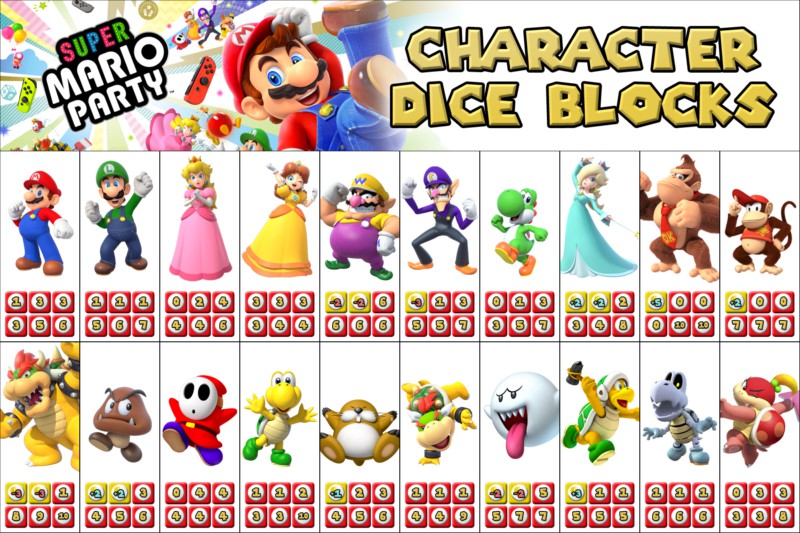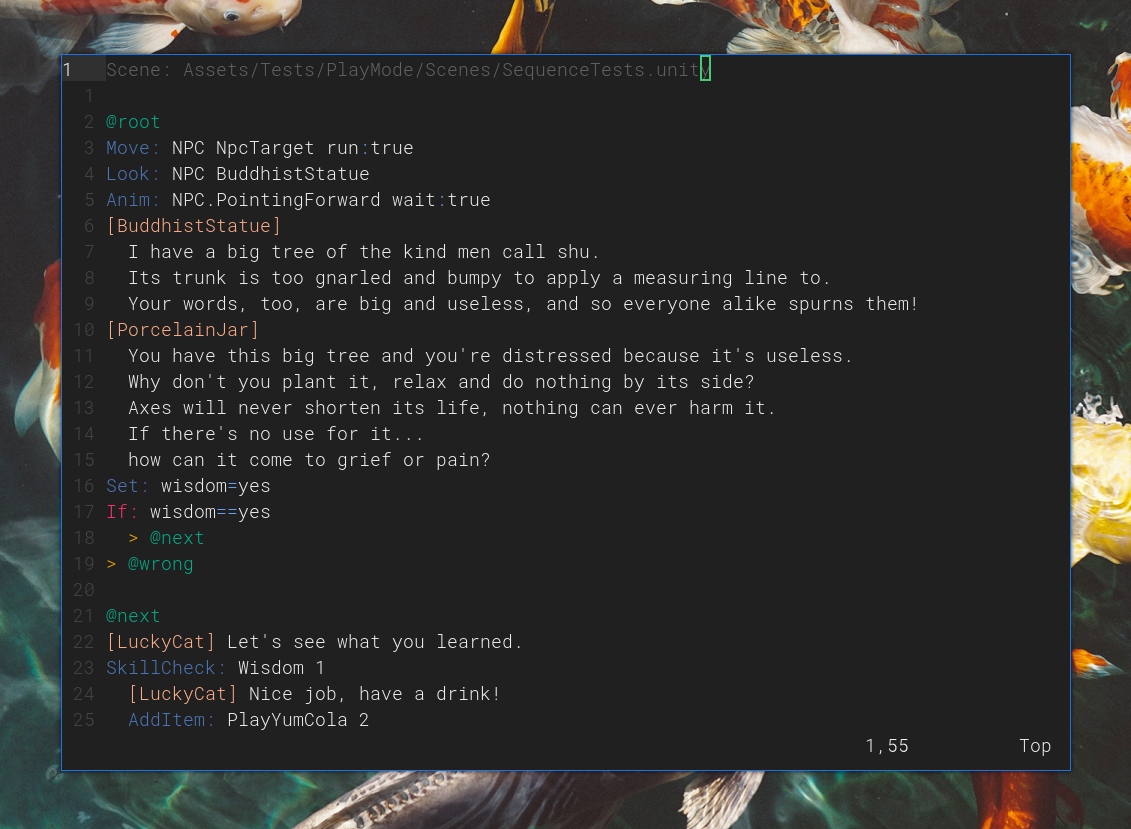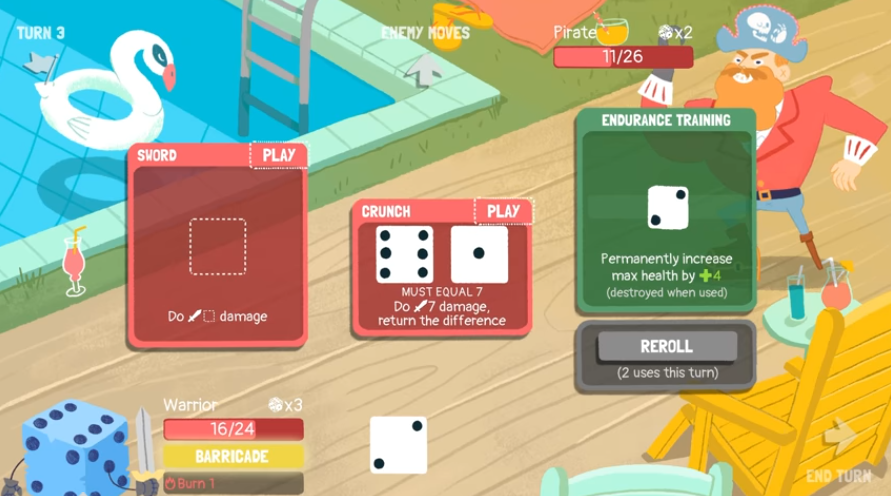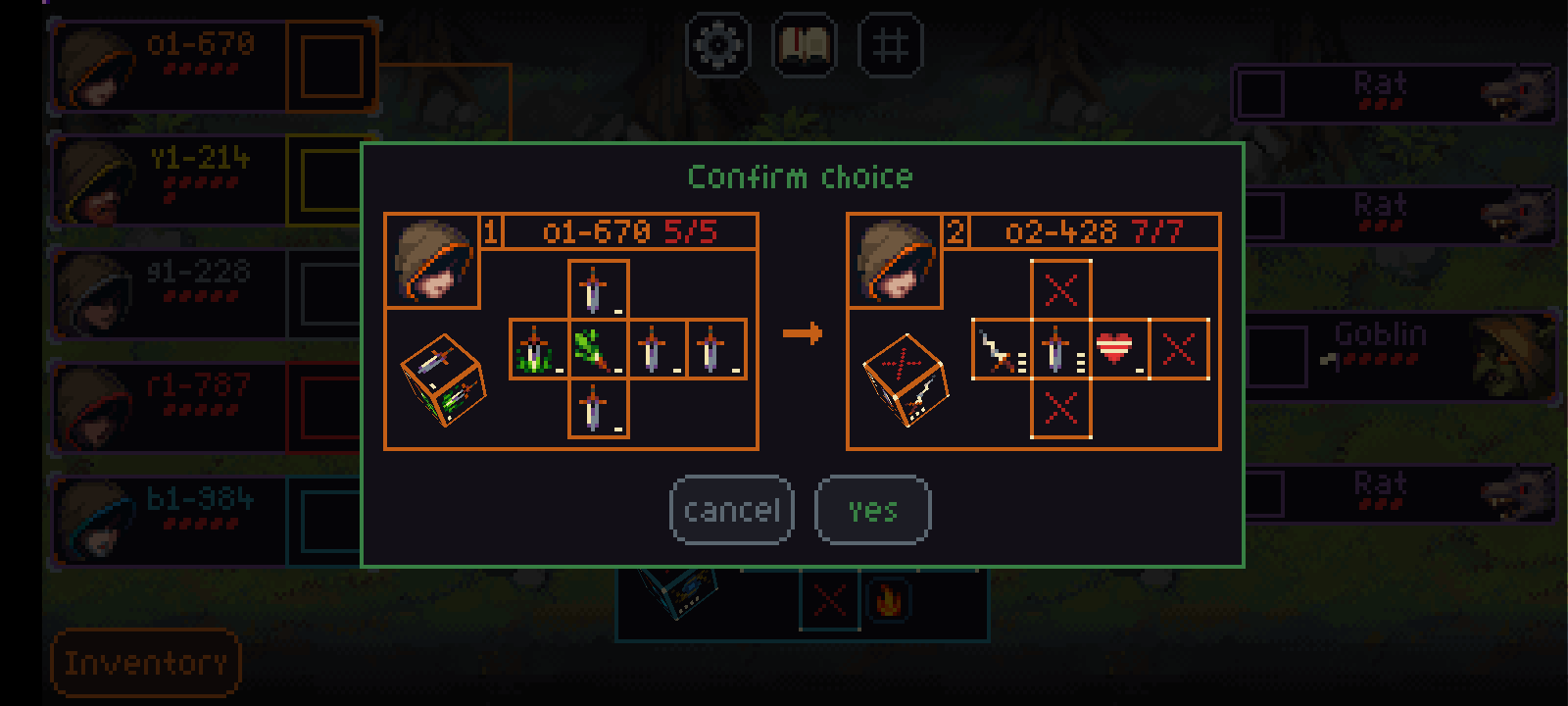Fugue Devlog 24: Puttering Along
I’ve been slowly chipping away at porting things to Unity, sketching out new game systems, and tweaking the verses script syntax.
verses Updates
For verses I’m constantly changing things to try and get the most concise syntax I can, without it becoming too hard to skim.
Two of the biggest changes are:
- Multiline remarks, which make it easier to write consecutive lines that are said by the same actor.
- Allowing conditionals to be inlined into a verse. Previously any conditional behavior had to be defined as a branching action, which would have to connect to a different verse entirely.
For the second change, the way it worked before was clunky. Say I want to have a character say something if foo==bar and then return back to the normal dialogue.
@root
Branch:
- @next_verse
If: foo==bar
- @default_verse
@next_verse
[Character] Foo equals bar!?
Branch:
- @default_verse
@default_verse
[Character] Continuing the convo...
This is a lot for what is essentially just a minor aside. The changed syntax introduces a new action, Aside, which groups actions under a condition, and then resumes the normal flow. So that script above would now be written:
@root If: foo==bar [Character] Foo equals bar!? [Character] Continuing the convo...
There are some other more minor improvements, like immediately specifying dialogue choice consequences/outcomes. Previously this would also be clunky, involving some variable being set by the script runner and then checking for this variable later on. Really roundabout and relies on things happening that aren’t defined in the script itself. Now it’s just a matter of:
[Character] Make a choice
- A choice
Outcomes:
AddItem: SomeItem
The other change is better variable namespacing. Previously there was just “local” (local to the script) and “global” (set across the entire game). The scopes are now “script” (local to the script), “story” (local to the story the script is a part of, e.g. within the context of a mission), and “global”. This will hopefully make managing script variables easier and cleaner.
The last major verses update is that I actually got Unity scene parsing working well in Rust, and ended up stripping out Godot scene parsing entirely (not worth maintaining both).
Semi-related, I also switched entirely from vim to nvim/neovim and set up custom highlighting and in-editor parsing/validation for the game scripts:
Unity Updates
The Unity version of the game is more or less at parity with the Godot version now. I’ve also implemented a very rough first draft for several other game systems (time, missions, inventory, etc). For inventory I’m tentatively using an RE-style spatial inventory, since it feels like a better way to limit inventory than weight/encumbrance, and is visually more interesting to manage. Still need to build out the UI for it though.
Because I’m expecting development to take a long time I switched over away from the LTS version of Unity to the 2022 version. So far it’s been a better editor experience–less laggy, though the compilation loop still sucks.
In general my experience with Unity has been very positive. I’ve been able to structure my code in a better and more reliable way than with Godot. The renowned Scriptable Object talk was extremely helpful in designing an architecture that feels easy to build on. Unity’s component-based system is much nicer for decoupling, and having access to a more mature programming language is worth a lot (C# features like interfaces are very handy).
I’m still getting used to how Unity does things, like addressables and what not. There is a lot that’s clearly meant for very advanced, high-end games, and it’s hard for me to discern what’s overkill for me to adopt now and what I’ll regret not using further in the development process. But that’s just how these things go.
In general my focus now is on lowish-level framework stuff (currently trying to get character movement to work correctly). There are still many undetermined mechanics that will require playing around with, so trying to design things to flexibly accommodate different possibilities, or at least get a good foundation to experiment on. At some point soon I’ll cross over into actual gameplay and eventually writing (I hope).
For now the current near-term roadmap is:
- Get character movement working well
- Start building out more UI
Dice mechanics
I haven’t thought much on mechanics as I’ve been in implementation-mode for the past several weeks, but I have some more thoughts on missions, the energy mechanic (a stand-in for some kind of resource management mechanic). I find myself coming back to the Mario Party character-dice system and the system from Dicey Dungeons where you assign dice to slots. I like these better than regular D&D-style dice rolls because there’s some randomness but enough room to strategize so that you have more agency over outcomes.

While searching for the images above I came across a game called Slice & Dice where you construct the dice yourself!


